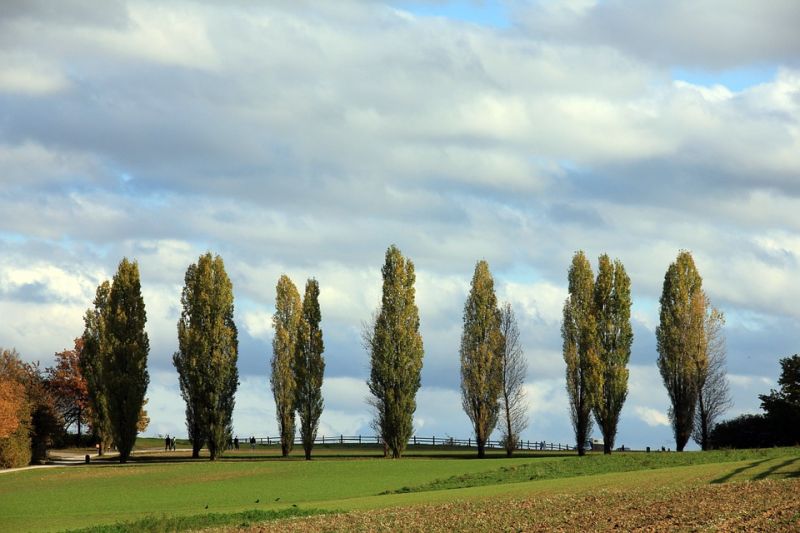Probiotics Help Poplar Trees Clean up Toxins from Groundwater
Published on by Water Network Research, Official research team of The Water Network in Academic
A probiotic bacteria for trees can boost the speed and effectiveness of this natural cycle, providing a microbial partner to help protect trees from the toxic effects of the pollutants and break down the toxins plants bring in from contaminated groundwater.

Poplar trees, Image source: Pixabay
Researchers from the University of Washington and several small companies have conducted the first large-scale experiment on a Superfund site using poplar trees fortified with a probiotic — or natural microbe — to clean up groundwater contaminated with trichloroethylene (TCE), a common pollutant found in industrial areas that is harmful to humans when ingested through water or inhaled from the air.
Their results were published in final form Aug. 11 in the journal Environmental Science & Technology.
The successful field trial could be a game changer to quickly and effectively clean up Superfund sites around the country and polluted sites abroad that have high levels of TCE, the authors say.
Contaminated sites containing TCE and other pollutants can be expensive to clean up when using engineering methods such as excavating or pumping toxins from underground. As a result, many sites sit untreated. This new method allows contaminated sites to be dealt with more effectively, often at lower costs, promoting human health.
Doty’s lab worked to find the best microbe strain that could effectively break down TCE and boost tree growth. Jun Won Kang, a former UW graduate student, had obtained poplar wood from a site in the Midwest where trees were already growing in TCE-contaminated soil. After grinding down small samples of the trees and isolating over a hundred different microbes, each strain was then placed in a flask containing high levels of TCE.
Read full article: University of Washington
Media
Taxonomy
- Agriculture
- Microbiology
- Groundwater
- Groundwater Assessment
- Groundwater Pollution
- Forest Conservation
- Agriculture